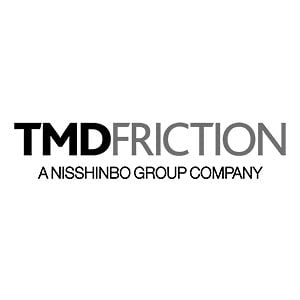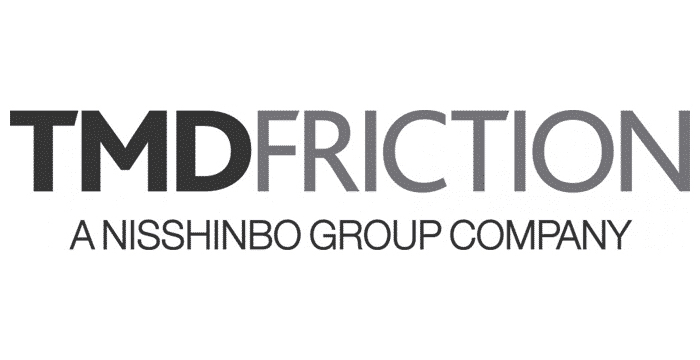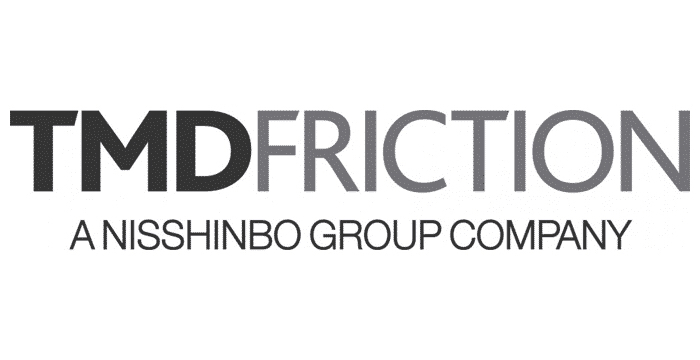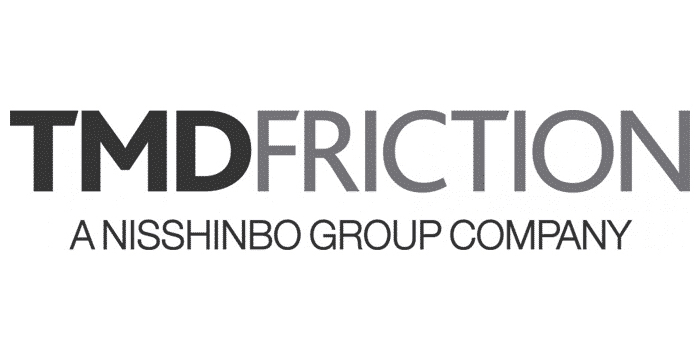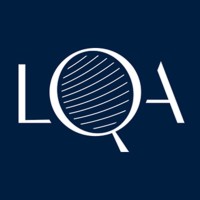Title Page
-
Site conducted
-
Conducted on
-
Prepared by
-
Location
PACE Food Safety Form
Critical Food Safety
-
FS1-US Restaurant is free of infestation and/or signs of active pest (animal/insect) infestation in<br>the restaurant building, adjoining corral, and any area within 10 feet (3m) of the building.
-
Select all applicable
- inside the restaurant has visible infestation
- inside the restaurant shows signs of active infestation
- outside the restaurant has visible infestation
- un-trapped live rodent(s)
- live cockroach(es)
- rodent droppings
- greater than 5 small flies in one area
-
Other
-
FS2-US The internal temperatures of beef patties after cooking are at or above 155°F (69°C).
-
Select all applicable
- temperature settings and cooking timers are not set correctly
- maximum run size exceeded
- patties not laid and removed in the proper sequence
- release sheets are not in good condition or not tightly placed on platen
- release sheets are not squeegeed between every run and wiped off with a grill cloth at least four times every hour
- patties not solidly frozen or shows signs of thawing
- grill is not in good repair
-
Other
-
FS3-US The internal temperatures of raw plant based and chicken products after cooking are at or above 165°F (74°C).
-
Select all applicable
- temperature settings and cooking timers are not set correctly
- maximum run size exceeded
- proper fryer baskets not being used or are overfilled
- oil levels in fryers are not correct
- portions not solidly frozen or shows signs of thawing
- fryer is not in good repair
-
Other
-
FS4-US The internal temperature of Filet-O-Fish portions after cooking are at or above 155°F (69°C).
-
Select all applicable
- temperature settings and cooking timers are not set correctly
- maximum run size exceeded
- proper fryer baskets not being used or are overfilled
- oil levels in fryers are not correct
- portions not solidly frozen or shows signs of thawing
- fryer is not in good repair
-
Other
-
FS5-US The internal temperatures of breakfast sausage made from raw pork and breakfast steak are at or above 155°F (69°C).
-
Select all applicable
- temperature settings and cooking timers are not set correctly
- maximum run size exceeded
- patties not laid and removed in the proper sequence
- release sheets are not in good condition or not tightly placed on platen
- release sheets are not squeegeed between every run and wiped off with a grill cloth at least four times every hour
- patties not solidly frozen or shows signs of thawing
- grill is not in good repair
-
Other
-
FS6-US Cooked McMuffin raw round eggs have gelled yolks (are not runny). Internal temperatures are at or above 155°F (69°C).
-
Select all applicable
- temperature settings and cooking timers are not set correctly
- eggs not laid and removed in the proper sequence
- egg ring not positioned properly on the grill surface or egg cooker not level on the floor
- egg ring or egg cooker is not in good repair
- grill is not in good repair
- yolks are runny (not gelled)
-
Other
-
FS7-US The on-duty manager (or staff assigned to complete the checklist) can demonstrate they have been trained on properly completing the Food Safety Daily Checklist including the ability to take corrective action.
-
Select all applicable
- manager does not know how to complete the Food Safety Daily Checklist
- manager does not know how to perform corrective actions
- pyrometer is not being properly placed in the center of the patties
- not all the 4:1 patties cooked are checked
- the manager does not know the correct minimum cooking temperature requirement
-
Other
TCS for Refrigerated Products
-
FS8-US All Time-Temperature Control for Safety (TCS) refrigerated products in code (within primary shelf life)
-
Select all applicable
- fresh beef
- produce
- cheese/eggs/dairy
- canadian bacon
- apple slices
- milk
- shake/sundae mixes
-
Other
Hygiene & Sanitation
-
FS9-US Handwashing sinks: There is running warm water and required supplies at all handwashing sinks. Handwashing sinks are easily accessed by employees and only used for hand washing, not preparing food or storing equipment.
-
Select all applicable
- supplies not available (soap/anti-microbial soap)
- soap dispenser not functioning properly
- no warm running water of at least 100˚F
- handwashing sink knobs/automatic tap not working
- no paper towel/working hand dryer
- handwashing sink used for other purposes
- handwashing sink/taps not reachable, obstructed or not accessible
-
Other
-
FS10-US Handwashing procedure: Hands are properly washed following hand washing procedures. A system is in place to ensure hourly and activity based hand washing by all employees.
-
Select all applicable
- hands not washed on hourly basis
- hand washing clock/timer not working/not in use/system not in place
- hand washing activity not monitored
- hands not washed after using restroom
- hands not washed after taking a break
- hands not washed after handling raw products and working on other station, e.g.,
- hands not washed after tasks (i.e. handling waste, cell phone, touching face, hair, off floor, etc.)
- hands not washed according to set procedure
-
Other
-
FS11-US Sanitized towel/cloth buckets: Sanitized towel buckets contain towels and chlorine sanitizer solution at the correct concentration checked with a chlorine test strip.
-
Select all applicable
- fresh bucket with sanitized towels not prepared
- no towels in fresh bucket
- sanitizer level is less than 50 ppm
- test strips not available/ damaged / expired / not in usable condition
- clean and/or soiled buckets not placed in convenient and accessible location
-
Other
-
FS12-US Sanitizer-soaked towels/cloths: Sanitizer-soaked towels and grill cloths used at food, beverage preparation, and service areas placed into the soiled towel bucket after using and not left sitting out on surfaces.
-
Select all applicable
- grill towels left out on kitchen surfaces
- cloth towels left out on kitchen surfaces
- cloth towels left out on beverage/service areas
- soiled towels mixed with fresh towels in the clean towel bucket
-
Other
-
FS13-US Utensil and trays sanitizing: All in-use UHC trays, grill utensils, prep table utensils, and utensil holders are clean (no build-up), washed, and sanitized at least every 4 hours as per approved procedure. The back sink and soap/sanitizer dispensers or dishwashers function (hot water 110˚F or higher in the wash bin/sink) with all required supplies. The sanitizer solution has the right concentration when checked with an appropriate test strip.
-
Select all applicable
- in-use UHC trays, utensils and utensil holders have excessive grease or build-up
- items are not being cleaned and sanitized every 4 hours
- back sink dispenser/ware washer not operating properly
- sanitizer solution not at the correct concentration
- water at back sink is not 110˚F or hotter
- test strips not available or damaged/ expired/ not in usable condition
- proper wash, rinse and sanitize procedures are not being followed
-
Other
Contamination Prevention
-
FS14-US State of cleanliness: The restaurant (all areas) in a good state of cleanliness. In all areas, the floors/walls/ceiling and equipment do not have dust/dirt/food build-up. There should not be a pool of standing water in the restaurant.
-
Select all applicable
- excessive build-up of dirt/grease / mold on floors/walls/ceiling (e.g. build-up of food equipment)
- excessive build-up of dirt/grease / mold on equipment
- standing/puddling water on the floor
- restrooms and facilities not cleaned regularly (minimum every 2 hours)
- restrooms and facilities not stocked
- storage room not clean and/or has a foul odor
-
Other
-
FS15-US State of repair: The building and equipment is functioning properly and in a good state of repair (not cracked or damaged). The freezers should not have an excess build-up of ice that would prohibit the unit to function properly.
-
Select all applicable
- water filter(s) not dated (if not serviced by Coke)
- water filters bypassed
- ice transfer bucket or ice scoop not clean
- ice scoop not stored in holder
- water/ice not protected from possible contamination
- ice machine bin or ice chute has visible mold or build-up
- ice bucket stored upright
-
Other
-
FS17-US Food product opened: Opened packages of food in storage, (including dry storage, refrigerators and freezers) covered/ wrapped, labeled, off the floor and away from walls. Product stored according to proper procedures.
-
Select all applicable
- product not covered
- product not labeled
- product not off the floor
- product not away from the wall
- product not stored according to procedure (e.g., raw above ready to eat)
- shake/sundae reservoir lid not in place
- all non-essential equipment, stationery and other items are not removed from food
- there is no plan for glass/porcelain/crockery breakage clearance
-
Other
-
FS18-US Raw food product handling: Blue or colored disposable glove procedures (or other globally approved procedures) used to prevent cross-contamination when handling all raw meat or poultry products (including shell eggs) at the grill station. Dedicated utensils used for raw products (e.g., the yellow hutzler spatula or egg yolk breaking tool is only used to break egg yolks).
-
Select all applicable
- gloves not discarded when removed/are being reused
- double set of gloves being worn
- blue gloves not removed at the proper time after handling raw products
- blue gloves not removed properly (from the wrist and turning inside out)
- yellow yolk breaking tool not available
- yellow yolk breaking tool used for items other than raw eggs
- yellow yolk breaking tool is improperly stored in contact with food or utensils used for cooking food
- utensils other than yellow yolk breaking tool used to break raw egg yolks
- dedicated tongs are used for anything other than handling raw protein products
- bare hands used with raw product at grill/fryer
-
Other
-
FS19-US Good hygiene practices: Disposable gloves and other personal hygiene procedures followed.
-
Select all applicable
- gloves not worn when preparing sandwiches, salads, or burritos
- gloves not changed and hands not washed if become contaminated
- gloves not discarded when removed or being reused
- gloves worn for non-food tasks and not changed/replaced before resuming food
- clear gloves are used for handling raw products
- double set of gloves being worn
- apron/hair/beard cover not used properly to prevent product contamination
- uniform not clean
- uniform not in good repair
- excessive jewelry on hands and wrists (more than a smooth ring/wedding band)
- finger nails are not trimmed, filed and maintained so the edges and surfaces are
- false nails, dirty fingernails or nail polish and not wearing intact disposable gloves
- employees consuming food and/or beverages in food prep or service areas
- gloves not worn or hands not cleaned and disinfected before adding ice / shake or
- aprons not removed before use of toilet
- false and/or dirty fingernails
-
Other
-
FS20-US Chemical management: All chemicals are clearly labeled and stored away from food and packaging.
-
Select all applicable
- chemical spray bottles/containers stored in the kitchen near food or open packages
- chemical spray bottles/containers stored in the service area
- chemicals are stored in dry storage near to food and packaging
- chemicals stored in food containers
- chemicals improperly used (ex. spraying around open food or packaging)
- chemicals not clearly labeled
-
Other
-
FS21-US Pest management: Pest management program is in place and working effectively. Restaurant is pest proofed to prevent entry of pests (e.g., gaps under doors are sealed, <br>drive-thru window closed when not in use).
-
Select all applicable
- pest management program is not in place
- pest management program is not working effectively
- restaurant is not pest proofed
- drive-thru window is not closed when not in active use (and there are no cars in the
- report is older than 60 days or no pest service report is available for review
- dead cockroach(es)
- trapped rodent(s)
- trailing ant activity in one area
- high large fly activity greater than 5 in one area
-
Other
-
FS22-US Non-food/biohazard spill procedures are in place.
-
Select all applicable
- 3N1 cleaner/disinfectant not available
- staff not trained in the use of the non-food spill procedures
- non-food spill procedures not available
- non-food spill procedures not followed
-
Other
Storage
-
FS23-US Frozen products: Walk-in freezers and any other primary storage freezers keeping products at 0°F (-18° C) or below. Secondary storage freezers keeping products solidly
-
Select all applicable
- product in walk-in freezer warmer than 0°F (-18° C)
- product in primary storage freezer warmer than 0°F (-18° C)
- product is not solidly frozen in two-door reach-in freezer
- product is not solidly frozen in grill side reach-in freezer
- product is not solidly frozen in wall-mounted freezer
- product in back up freezer warmer than 5°F (-15° C)
-
Other
-
FS24-US Refrigerated products: All products in walk-in refrigerator and any other primary storage refrigerator at or below 40° F (4° C) (including shake/sundae in reservoir). All products in secondary storage refrigerators keeping at correct temperature.
-
Select all applicable
- walk-in refrigerator
- prep table refrigerator
- pass-through prep line refrigerator
- two-drawer grill side refrigerator
- service area refrigerator
- shake/sundae machine
- blended ice machine
-
Other
-
FS25-US Shelf lives: All in-use refrigerated products held in refrigerators or at room temperature marked and being used within their secondary shelf lives.
-
Select all applicable
- produce held at the prep table or chilled rail
- cheese/eggs/dairy
- canadian bacon
- apple slices/butter pats at room temperature or chill pans
- product held in refrigerators are not properly marked
- product held in refrigerators not within proper secondary shelf life
-
Other
-
FS26-US Leftover heated foods: All leftover heated foods are discarded (including expired food in the UHC and any shake/sundae mix removed from heat treatment shake/sundae machines). Heated food products (proteins) are not held below 140 °F (60 °C) or beyond their defined time.
-
Select all applicable
- shake/sundae mix
- sauces/soups/gravies
- food donation products not stored in freezer
- products held without a timing mechanism
- breakfast meats
- egg products
- beef patties
- fried chicken products
- fried fish products
- hotcakes
- marinator
- simplified breakfast cabinet
-
Other
Cooking
-
FS27-US Pyrometer: The pyrometer and accessories (e.g., probes) are clean, calibrated, working correctly, and used correctly.
-
Select all applicable
- probe not complete/missing
- pyrometer not in calibration
- pyrometer/probes damaged
- pyrometer/probes dirty
- needle not sanitized when used for ready to eat product
- needle not sanitized after unacceptable temperature
- backup pyrometer, batteries, and probe not available
-
Other
General
-
FS28-US Sourcing: All food, food packaging, equipment (including utensils), and cleaning chemicals <br>are from approved sources.
-
Select all applicable
- food not from approved sources
- packaging not from approved sources
- equipment not from approved sources
- cleaning chemicals not from approved sources
-
Other
-
FS29-US Employee health: Managers understand employee illness symptoms and reportable illness causes for when an employee cannot be working. Managers also understand when an employee can return to work after illness.
-
Select all applicable
- manager does not know all symptoms that would result in employees not being
- manager does not know the procedures to follow when presented with an ill
- manager does not know when an ill employee would be allowed to return to work
- manager does not know the reportable illness causes
- employee(s) are observed exhibiting any of the reportable illness symptoms
-
Other
-
FS30-US Staff training: All managers (including shift managers) trained and certified in food safety per local requirements or McDonald's minimum requirements in absence of local regulations (apply the standard that is more stringent). The staff is trained on food safety per global requirements and market expectations before commencing work.
-
Select all applicable
- certification date is not current
- certification for managers not issued by ANSI accredited organization
- certification records for all managers not available for review during the visit
- employee training tracking document not available for review during the visit
- not all employees have been trained and verified
-
Other
-
FS31-US Food Safety Checklists: The last 60 days Daily Food Safety Checklists (DFSC) and past two Monthly Food Safety Procedures Verifications (MFSPV) are available. There is no evidence of system failures (e.g., more than 20% (6 or more in 30 days), missed or incorrect <br>completions in the DFSC and MFSPV.
-
Select all applicable
- last two completed Monthly Food Safety Procedure Verifications are not available
- digital Food Safety less than 80% completion for the last 60 days of Food Safety Daily
- last 60 days completed Daily Food Safety Book (records) not available
- evidence of systematic failures (e.g., more than 6 missed or incorrect in 30 days) in
-
Other
-
FS32-US Health Department Inspections: Review the most recent health department inspection and food safety audit reports. All food safety violations noted by the health department have been corrected or have a plan in place to correct issues.
-
Select all applicable
- health department inspection report not available
- critical violations noted by health department have not been corrected
- plan not in place to correct issues
-
Other
-
FS33-US Allergen management: Market specific allergen management program in place.
-
Select all applicable
- orange container not utilized for nut containing mix-ins
- dedicated scoop not utilized or available
- nut-free mix-ins kept in the orange container
- allergen information not available for staff
- staff not aware of the correct procedure to follow when dealing with customer
- local requirements not adhered to
-
Other
-
FS34 HST1 Are hands-free water taps (faucets) installed for kitchen handwashing units?
-
FS35 HST2 Are hands-free paper towel dispensers installed in place of hands air-dryers?
-
FS36 HST3 Are hand sanitizers or handwashing station available close to kitchen entry?
Sign-off
-
Completed By (Name, Signature, Date):






